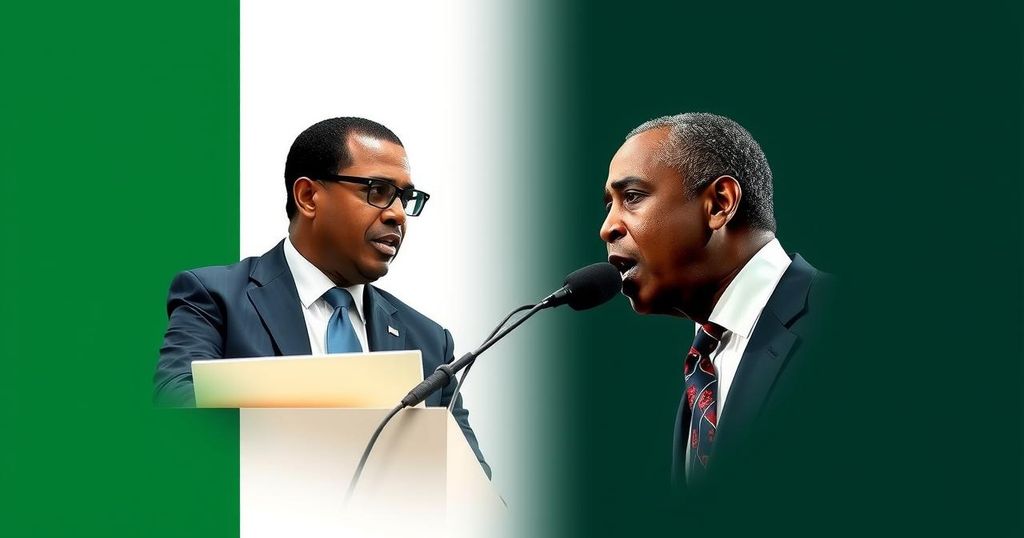Reflections on the U.S. Presidential Election: Lessons from Nigeria

The passage discusses the emotional impact of electoral defeat in the U.S. presidential election, reflecting on similar experiences in Nigeria’s elections. The author highlights the political disillusionment experienced after Peter Obi’s loss to Bola Tinubu, comparing it to Donald Trump’s controversies during his presidential candidacy. It stresses the importance of humility and respect in healing societal divisions post-election.
The recent United States presidential election has concluded, but the aftermath necessitates a painful adjustment for those whose preferred candidates were not victorious. Reflecting on my personal experiences during Nigeria’s 2015 elections, where I supported Goodluck Jonathan against Muhammadu Buhari, I felt a similar disappointment when my chosen candidate, Peter Obi, lost the 2023 election to Bola Tinubu. My commitment to Obi was strong; I even contributed financially to his campaign, believing it represented a new hope for Nigeria amidst political corruption and ineffective leadership that has plagued the nation for years.
Despite his promise of change, Buhari’s tenure resulted in deteriorating socio-economic conditions, leading many to look towards candidates like Obi. Unfortunately, Obi’s defeat, compounded by allegations of election rigging against Tinubu’s party, has left many Nigerians feeling disillusioned. Unlike Nigeria’s reaction, Trump’s recent win amidst legal troubles reveals a commonality in political dynamics; both nations appear to grapple with the acceptance of leaders despite controversies surrounding them.
Comparative reflections from myself and other analysts express a sentiment that the political climate in both Nigeria and the U.S. reflects fractured moral values and social integrity. The disregard for the electorate’s voice only deepens frustrations across communities, where rancor and tribalism have escalated among supporters of the differing parties.
Moving forward, a constructive approach that emphasizes humility and respect from both victorious and defeated parties could foster healing within societies. At a time when political division is palpable, a collective effort towards unity is crucial. The commitment to healing should transcend mere rhetoric; it must be actionable, encouraging citizens to engage in fostering a community that values cooperation over animosity. The political landscape in both nations must evolve beyond mere contestation to embrace dialogue that underscores shared humanity and collective aspirations for a better future.
The U.S. presidential election results have sparked debates about acceptance and political realities faced by voters in both America and Nigeria. The author’s comparison of experiences during the Nigerian elections provides insight into the emotional turmoil following electoral defeat and highlights a broader discussion on leadership, accountability, and public sentiment towards elected officials. This examination serves to illuminate parallels between the political landscapes and societal impacts of government actions in both nations.
In conclusion, the political landscapes of Nigeria and the United States reveal shared challenges in accepting electoral outcomes, particularly amid allegations of misconduct and societal division. Emphasizing the need for mutual respect and humility among political factions may pave the way for healing and constructive dialogue. As the citizens of both nations grapple with their political realities, the fostering of unity and cooperation becomes imperative to navigate future challenges and avoid perpetual divisions.
Original Source: baptistnews.com








